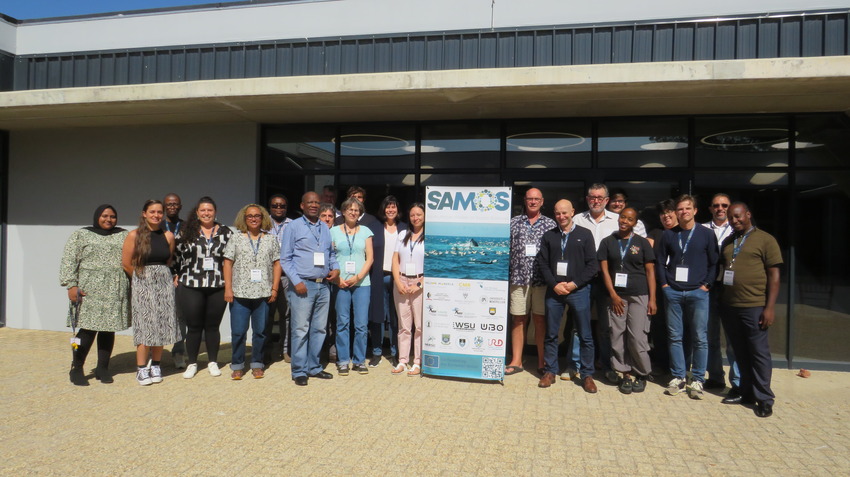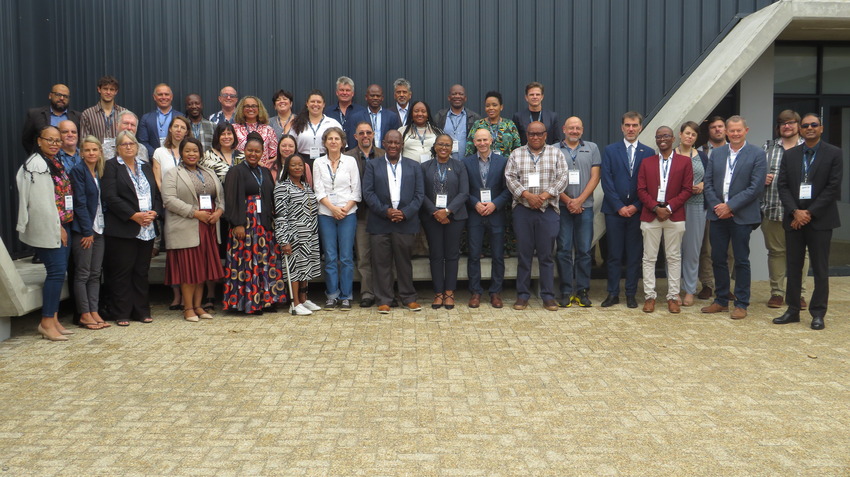

Nelson Mandela University, Cape Peninsula University of Technology, National Research Foundation, Rhodes University, University of Cape Town, University of Fort Hare, University of KwaZulu-Natal, University of the Western Cape, University of Zululand, Walter Sisulu University, Institut de Recherche pour le Développement, Nansen Environmental and Remote Sensing Center, Université de Bretagne Occidentale, University of Montpellier, University of Bergen
The opening of the South African Master of Ocean Sciences (SAMOS) project was welcomed by the choir of Nelson Mandela University, which delivered a heartfelt introduction, extending a warm greeting to all attendees at this momentous occasion. The launch took place from 8-10 April 2025, hosted in Gqeberha, South Africa, Nelson Mandela University. This marked the beginning of a dynamic three-year initiative, coordinated by the University of Brest (France), and funded by the European Commission under the Erasmus+ Capacity Building in the field of Higher Education (CBHE) programme.
The SAMOS project was developed to co-create a new multidisciplinary Master of Ocean Sciences degree in South Africa with both a taught and a research component. This inclusive initiative is a collaborative effort between nine South African universities, 5 of which are historically disadvantaged universities, the National Research Foundation, and five European partner institutions, aimed at strengthening education, research and innovation in support of the sustainable blue economy.1
The opening day featured remarks from key stakeholders, who reflected on the years of groundwork that led to this milestone and emphasised the strategic value of advancing ocean sciences. At the heart of the project lies the goal of equipping the next generation of scientists with the tools and knowledge to manage ocean resources responsibly. Dr. Muki Moeng, DVC Teaching and Learning at Nelson Mandela University, highlighted the direct contribution of the SAMOS programme to sustainable practices and responsible resource management, aligning closely with South Africa’s Vision 2030.
